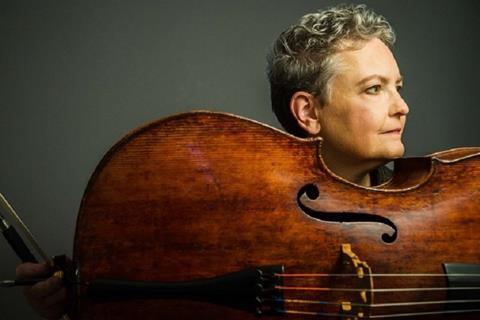The cellist and Boston Conservatory chair of strings considers the value of the composer's etudes

This extract is part of a longer article originally published in The Strad's August 2013 issue - download through The Strad App.
I first encountered the Popper studies quite early on. I had a wonderful teacher, Robert Ritsema, who assigned some of them to me before I really understood how difficult they were – perhaps so that I wouldn’t have any fear of them.
To be able to play them, you have to know the fingerboard both up and down and across the strings. I think that’s what first struck me about them – that I had to learn how to get into and out of every position. And if you use Popper’s own bowings, the independence of the hands is just amazing. You’ve got long, legato bows, but within them you’re shifting up and down the instrument, trying not to make any break in the sound. And with some of the studies, you’re also crossing over a bunch of strings, having to work out rapidly where you need to be without hitting the strings in between.
One of the wonderful things about them is that they really teach you how to practise. You have to sort out what the problem is that you need to solve, and then figure out what you need to do to accomplish that. It makes you think of how you should be practising, and you can apply that to concertos and any other pieces you’re working on. For example, the dreaded no.33 is one of my favourites. You have to take it apart so that at first you’re practising just the thumb, then adding the octave, and then gradually adding the notes in between. You really need a practice plan for that study – if you don’t have the groundwork, it’s not going to work. But you learn that the hard way – and you might find out that you haven’t been practising properly for a long time.
I regularly return to the studies myself – often just to read through a few of them, or to take a longer look at one if I’ve assigned it to a student and haven’t played it in a while. But they’re such fun when you come back to them like that. And Popper’s harmonic changes are just wild – you can tell that he played a lot of Strauss and Wagner. In fact, it’s often difficult to hear the key changes, especially for those of us without perfect pitch, and it’s quite a feat just to be able to hear what note you’re supposed to be playing next, and what key you’re going to.
The Popper studies improve students’ knowledge of the fingerboard, and also their ability to hear where they’re going. The cello can be quite difficult in upper positions, especially in terms of string-crossing. But once you get used to that, everything comes more quickly, and you can learn classical or contemporary pieces much faster.'
Four top cello teachers, including Alexander Boyarsky, Colin Carr and Alexander Baillie, give their thoughts on Popper's notoriously tricky cello studies in The Strad's August 2013 issue - download through The Strad App.
Photo: Liz Linder











































No comments yet